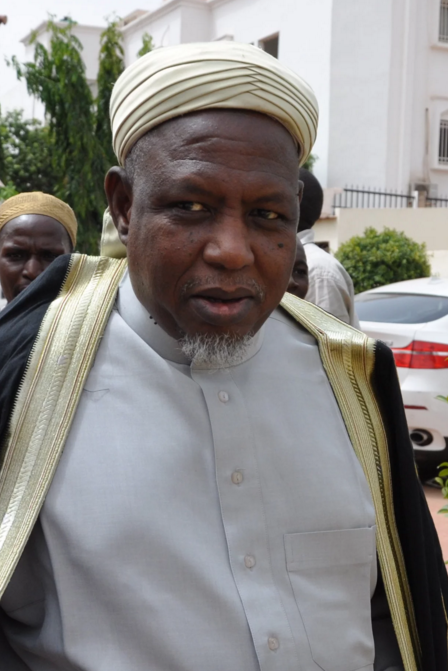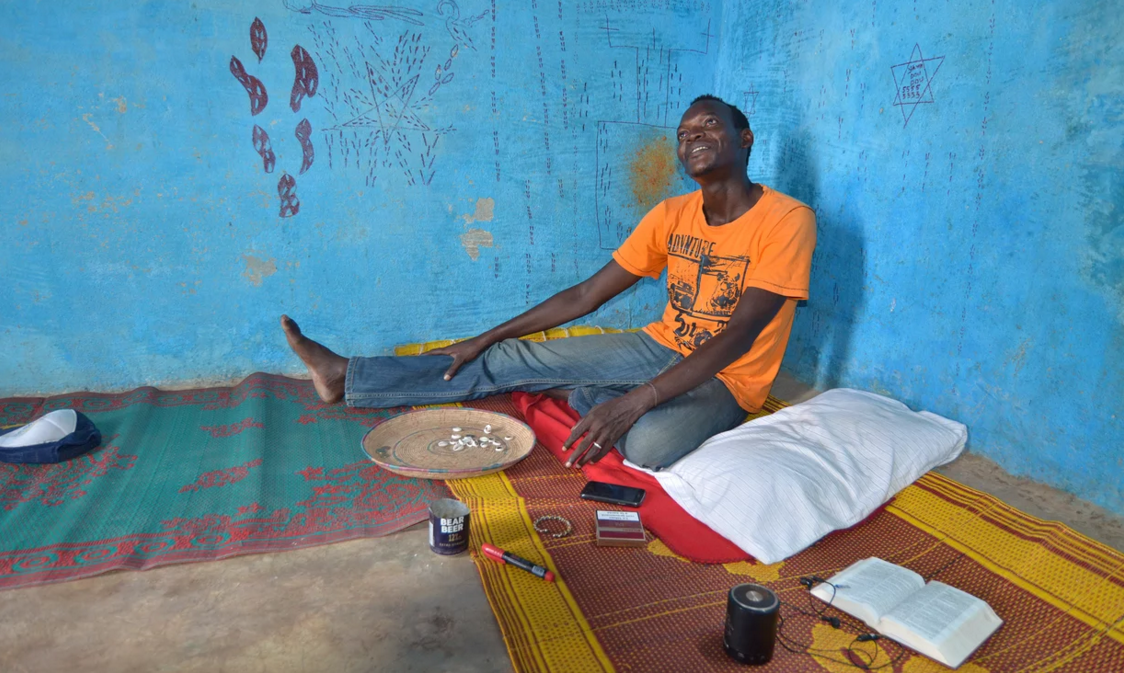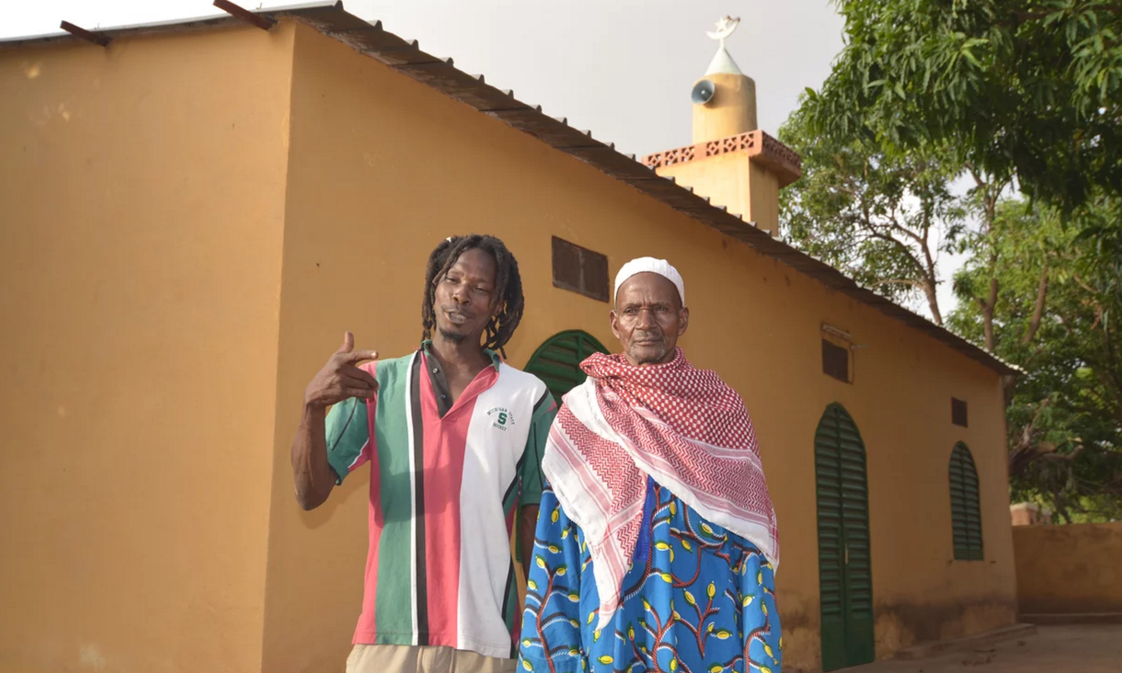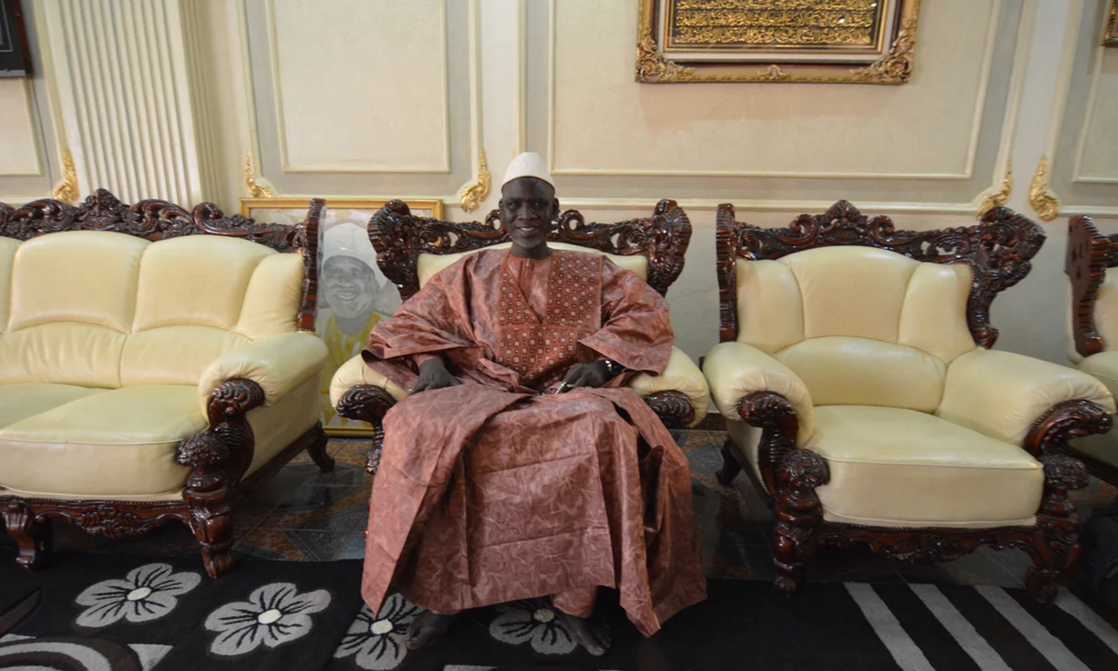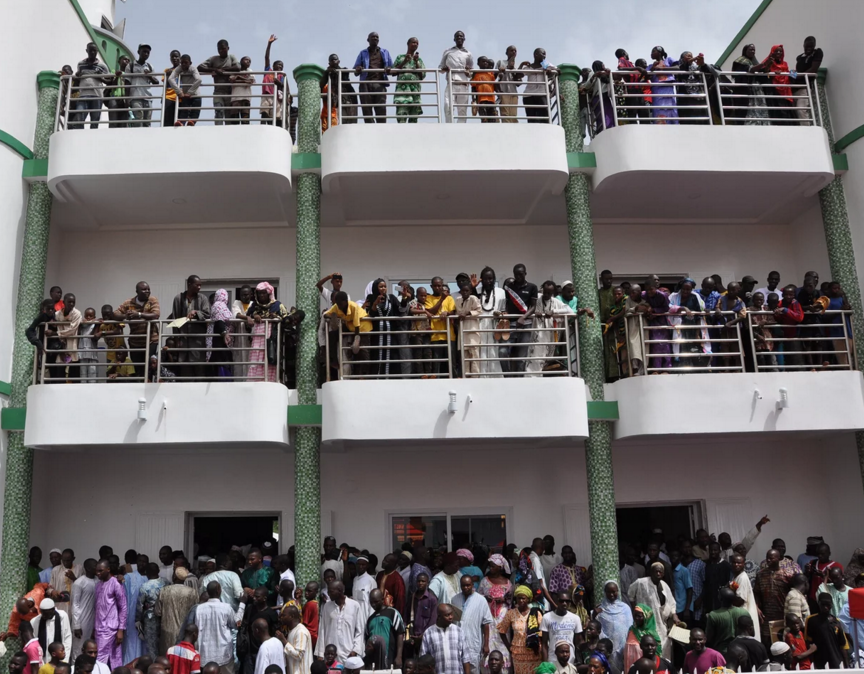Distinguished
Writing
Award 2016 Nominee
The Struggle for Mali
Jack Watling
When fighters linked to al-Qaida swept into Timbuktu on 1 April 2012, Dr Ibrahim Maiga found himself living a nightmare. The new rulers of west Africa’s most famous centre of Islamic scholarship immediately set about destroying its history. Over the following months they set fire to thousands of ancient manuscripts, destroyed the mausoleums of local holy men and forced musicians into exile. For the invaders, many of whom were from Algeria and other parts of the region, “saint worship” and music were un-Islamic. The new sharia court wasted no time issuing death sentences to anyone who violated its creed.
State officials fled before the onslaught, and Dr Ibrahim became the most senior medic in Timbuktu. Overnight, he found himself responsible for providing healthcare to a population of 60,000. “The first responsibility of government is governance, then security,” he said. “But the state left. They all ran away.”
The rebellion had started that January. Tuareg nationalists who had served in the army of Colonel Muammar Gaddafi had returned from Libya the previous summer, armed with heavy weapons plundered from the collapsing regime’s arsenal. They then launched an uprising in pursuit of an independent Tuareg homeland in northern Mali. The government’s shambolic mismanagement of the uprising angered army chiefs, and in March they conducted a coup in the capital Bamako, hundreds of miles to the south. With the state in disarray, the Tuareg rebels teamed up with Islamist groups, and together they drove the army out of northern Mali – an area the size of Spain. But the jihadists soon cast the Tuaregs aside and imposed their own brutal form of governance across the northern regions of Gao, Kidal and Timbuktu.
The occupation lasted 10 months. On 28 January 2013, French and Malian troops retook Timbuktu, and it was placed under the protection of United Nations peacekeepers. UN vehicles still patrol the town, guarding it from bandits who raid the surrounding villages. But while the UN provides essential services, the government has yet to return. The few officials who have ventured north have been threatened, or simply assassinated. This June, a senior UN official in Timbuktu told us that “the return of administrators is a key priority”, but they admitted that many of the Malian officials who had been flown into the north on UN planes quickly abandoned their posts.
In the state’s absence, Mali’s northern desert has become a vast, lawless expanse at the centre of west Africa; a crossroads for drugs, people and arms that links territories held by Boko Haram in Niger and Nigeria to the bases of veteran jihadists in Libya and Algeria. It is a security nightmare for west Africa, and increasingly for Europe, which fears the creation of yet another haven for terrorism.
Despite the presence of UN peacekeepers and ongoing French counter-insurgency operations, Islamist militants have attacked civilian targets all over Mali. At least 342 people have been killed this year alone. Driving into towns on motorbikes, gunmen have torched government buildings and executed local officials. In March, a lone attacker hurled a grenade into La Terrasse, a popular nightclub in Bamako, then opened fire with an automatic weapon, killing five people. The most deadly attack came last week, on Friday 20 November, when 170 people were taken hostage at the Radisson Blu, a luxury hotel in the capital. Before the captives could be liberated, 19 were killed. Two foreign jihadist groups, al- Mourabitoun and al-Qaida in the Islamic Maghreb, claimed responsibility.
The next day, the Malian president Ibrahim Boubacar Keïta delivered a defiant statement outside the hotel, declaring that terrorism would not win. But the attack highlighted once again the chronic weakness of the Malian state.
The army’s ousting from the north, political turmoil in Bamako and the rise of banditry and terrorism have exposed a system that is corrupt and ineffective at almost every level. With the government unable to provide basic services to much of the population, many Malians have turned to more traditional sources of social support, material assistance and moral leadership – their imams.
In Timbuktu, three years after the jihadist occupation, one of the most prominent local religious leaders is Daouda Ali Maiga, who presides over a vast mosque on the outskirts of the city. When we met one evening earlier this year, lightning flashed outside and the wind whistled around the building as the first rainstorm in 18 months thrashed down on the roof. The electricity was out, and the ageing imam’s face was illuminated from below by a solitary torch. Around him, his students sat in the shadows, listening to his measured words. Like Dr Ibrahim, he stayed in Timbuktu throughout the occupation. As the headmaster of the Askia Daoud Centre, he ran one of the largest schools in the city.
“Today we have over 400 students and 19 teachers. We teach all subjects, not just Islam, but languages and modern sciences. We teach boys and girls, from seven years old onwards,” he said.
There are other schools in Timbuktu, but Daouda’s is special: when the economy was shattered by war he decided to stop charging fees. To fill the funding gap, he tapped into Islamic charities based in the Gulf, and activated his personal network of contacts from the years he spent in Saudi Arabia. He has even secured funding to send the best students to study in the Gulf. When he set up the centre, the imam of the Sacred Mosque in Mecca sent his own son to attend the opening ceremony.
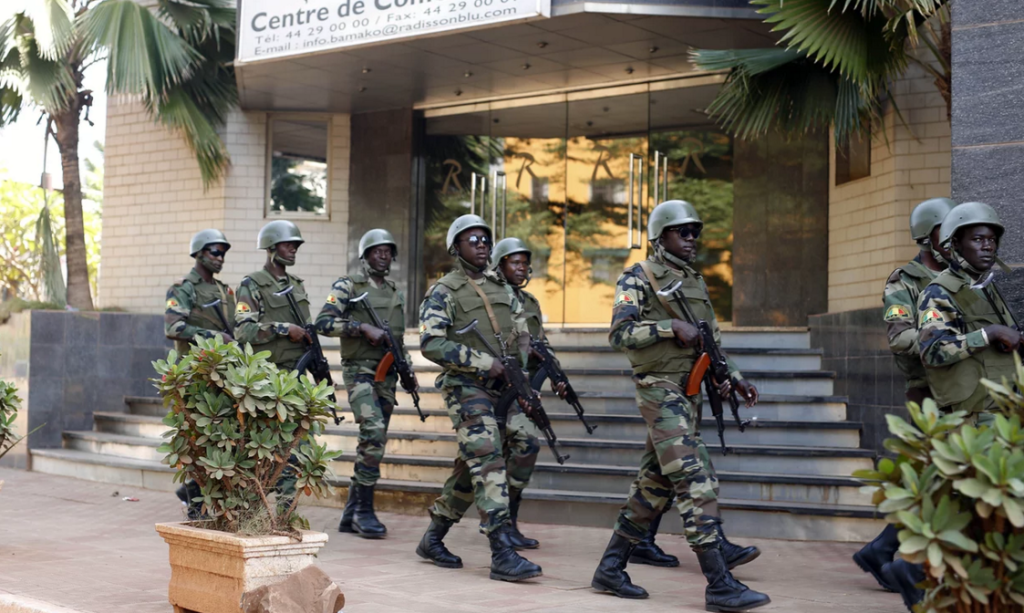 Soldiers patrol outside the hotel in Bamako that was attacked by Islamic extremists. Photograph: Jerome Delay/AP
Soldiers patrol outside the hotel in Bamako that was attacked by Islamic extremists. Photograph: Jerome Delay/AP
But locally, Daouda’s reputation has been tarnished by his involvement with the jihadists during the occupation. One day, a 25-year-old called Mahaman Diedou was accused of stealing a sack of rice. He was brought before the sharia court, which ruled that he should have his hand amputated. It was Dr Ibrahim, the medic, who had to tend to his stump after the sentence was carried out. Daouda was one of the judges.
Daouda insists that he took up the position under duress. During the occupation, armed jihadists would come to his mosque for Friday prayers. “If someone came to your mosque to pray and had a gun, would you refuse to pray with them?” he asked. “They forced people to do things. If you are with someone in appearance but oppose them in your heart you are not really with them.”
But there was a reason why the jihadists selected him as a judge. Daouda is a Salafist, a Saudi-trained scholar who had long preached against the Sufi practice of praying at the graves of holy men. He continues to espouse a deeply conservative faith that is at odds with the syncretic Islam, which blends many religious customs, that is traditionally practised in Mali.
Daouda eventually resigned from the sharia court, not because its sentences were too extreme, but because the jihadists refused to execute one of their own Arab fighters who killed a child. “They believed that the soul of a white person is more important than the soul of a black person,” he explained.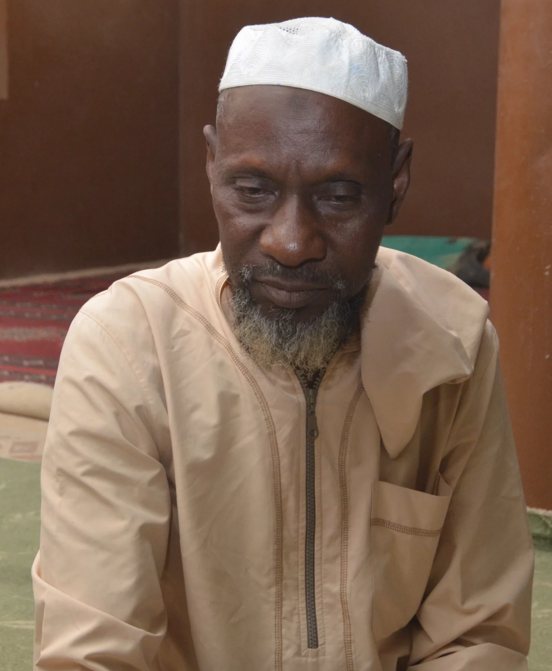
Imam Daouda Ali Maiga is a prominent religious leader in Timbuktu. Photograph: Jack Watling for the Guardian
Despite his role in abuses during the occupation, Daouda has remained an influential figure in Timbuktu. With state authorities all but absent from the region, an investigation into his collaboration with the jihadists has been dropped, and his school remains one of the biggest providers of education in town.
The collapse of the state has if anything increased Daouda’s influence and drawn greater attention to his teachings, but his Salafism was controversial before 2012. Daouda’s beliefs, at odds with the religious practices of a majority of his community, are deemed by many to be, like the jihadists, foreign. His connections to Saudi Arabia lead to accusations that he serves foreign interests. And yet, for all that, he continues to attract followers, expanding a communal divide.
The divisions that have hung over Timbuktu since the jihadist occupation reflect a struggle that affects the whole of Mali. The November attack was a reminder that a plethora of militant Islamist groups, many with their origins in Algeria, are free to operate in Mali. However they are not the only foreign forces seeking to change the way Islam is practised there. Local religious leaders, backed by foreign charities and governments, are pushing rival interpretations of the faith that are creating deep tensions in Malian society.
***
In July 2012, when the Malian government decided to send an envoy to talk with the jihadists occupying Timbuktu, they did not send a diplomat. They sent Mahmoud Dicko, president of the High Islamic Council of Mali. When Mali was desperate for foreign help in resolving the ongoing crisis in the north, it was not the foreign minister who toured Europe, but Dicko and his deputy, Chérif Ousmane Madani Haïdara, along with the Roman Catholic archbishop of Bamako, Jean Zerbo. When a local community needs a new mosque, they do not call the Ministry for Religious Affairs. They call Dicko. Neither Dicko nor Haïdara holds government office, but they have the power to mobilise street protests that can prevent laws being passed.
Although they work together, the two men are bitter rivals. Dicko heads the minority Salafist community, a recent addition to Mali’s colourful patchwork of religious groups. Haïdara, who has roots in the Maliki tradition that has dominated Mali since the 13th century, is one of the richest, most influential holy men in west Africa. Malikism, a school of Islamic jurisprudence, incorporates communal custom to assist in interpreting the Qur’an and hadith, a practice rejected by more literal interpretations of the faith.
Both Dicko and Haïdara exemplify how religious patronage has supplanted the institutions of the Malian state. In their spiritual role, they wield immense moral authority, and through the essential services they fund, have a practical relevance to the lives of ordinary Malians in regions where the government has disappeared.
Mahmoud Dicko, president of the High Islamic Council of Mali Photograph: Paul Raymond for the Guardian
Dicko was born in 1954 in the desert village of Tonka, near Timbuktu. Son of a religious judge, he was raised by a conservative family and memorised the Qu’ran by the age of 15. Wahhabism, the austere form of Islam practised in Saudi Arabia, has had a presence in Mali since the 19th century, when it was brought back by Malians who had travelled to Mecca on hajj. It won few converts as it rejected the mixing of local traditions with strict Islamic law. But during Dicko’s teenage years, Saudi charities began to fund mosques and schools in Mali’s cities, and some young Malians were offered the chance to go to Saudi Arabia to study. Dicko was among them. After a short spell studying Arabic in Mauritania, he headed to Medina, the second most holy city in Islam, where he studied Islamic theology.
On his return to Mali, Dicko worked briefly as an Arabic teacher, then, like many of the early Gulf-educated graduates, became an itinerant preacher, giving sermons and leading prayers around Bamako. He quickly built up a following, and in 1983 a community of Salafists invited him to become imam of a mosque in Badalabougou, a middle-class suburb of Bamako.
Haïdara was born a year after Dicko , near the city of Ségou in the south of Mali. Educated at a French school, he began preaching as a teenager in Bamana, a language spoken across Mali, Guinea, Burkina Faso and Senegal. He continued his religious education under Saad Touré, a local scholar steeped in Mali’s Maliki traditions. Haïdara moved to Bamako and began to distribute his sermons on cassette. By 1991, when mass protests prompted the army to overthrow the dictatorship of Moussa Traoré, Haïdara had gathered a large following.
Traoré’s government had long suppressed civil society, but the 1991 constitution created a new space for cultural and religious expression. Religious organisations were quick to take advantage, and hundreds of new Islamic associations were founded. Few would be as influential as Haïdara’s Ansar Dine (Arabic for “defenders of the faith”). Over the course of the 1990s, its membership grew into the tens of thousands. Relying on private donations, Haïdara established a nationwide network of schools, hospitals and mosques.
But given the country’s secular constitution, these associations had little political clout. Mali has been officially secular since its independence, a legacy of French colonialism. The state has become so detached from religious institutions that a senior UN official liaising with the Malian government in Bamako earlier this year told us that “Malian society is not fundamentally religious”.
In 2002, a group of senior imams set out to change this state of affairs by establishing the High Islamic Council, widely referred to by its French acronym, HCIM. The council brought together around 400 Islamic associations, giving them a platform through which they could coordinate their activities and influence government. Dicko and Haïdara, both influential preachers and respected imams, were elected to its executive committee. In 2007, Dicko was elevated to the presidency. The Salafists were on the rise, and the council was to become a key player in Malian politics.
In August 2009, the Canadian government and other donors pressed the Malian parliament to change the country’s conservative Personal Status and Family Code. Under the proposed new law, girls would have more inheritance rights, women would no longer be required to obey their husbands, and only secular marriages would be recognised. The HCIM saw the bill as un-Islamic. Dicko and his colleagues mobilised protests across the country. Tens of thousands demonstrated on the streets of Bamako. Weeks later, under intense pressure from the HCIM, the then president Amadou Toumani Touré refused to sign the bill into law. It was a turning point in Mali’s hitherto largely secular politics: a religious organisation had shown it could stop the government in its tracks.
The events of 2012 only increased the HCIM’s power. The army’s rapid retreat from the north exposed widespread corruption, prompting a collapse of confidence in the political class. Imams became the sole surviving source of moral authority. Unlike any of the country’s politicians, Dicko and Haïdara are both treated like rock stars by their supporters. And theirs is a popularity that politicians cannot afford to ignore. These days, President Keïta telephones Dicko twice a week.
Dicko stays aloof from the day-to-day business of politics, but he wields immense influence behind the scenes. Despite being a small minority of the population, Salafists have come to dominate the HCIM’s executive committee. This position gives them enormous influence, from the presidential palace to the poorest villages in Mali.
One consequence of religion in Mali becoming politicised is that differences in religious practice have become markers for political allegiance, fuelling an increasingly sectarian shift in Malian society. Where people once simply referred to each other as Muslim, they are now labelled Wahhabist, Sufi or Shia – and these labels, meant to suggest links to foreign political agendas, often accompany accusations of sinister intent.
Among the Maliki majority, the Salafist minority’s takeover of the elected leadership of the Islamic Council is the subject of endless speculation. Imam Diallo, a Maliki leader and member of the HCIM executive committee, accuses Dicko of being “a moral referee who has started to kick the ball. How, in a country where only 15% of the population are Salafi, do they have so much power? With funding from Saudi Arabia. Dicko is trying to take over the country.”
***
A few days before the start of Ramadan in June, Combey Adamah explained his faith. Sitting in a small breeze-block shack, nestled amid wiry trees at the top of a hill overlooking Bamako, he was surrounded by a wicker tray of shells, a bible open at Leviticus, and an array of mystical symbols drawn onto the electric blue walls of his dwelling. Adamah is a witch doctor and member of a community of Rastafarians who live above the village of Lassa. In their hilltop retreat, the Rastas smoke weed, listen to reggae music and try and purge themselves of the material excesses of the world. Their beliefs are diffuse, combining Rasta wisdom, new- age spirituality and west African animism.
Witch doctor Combey Adamah explains how he works magic in the front room of his cinderblock house. Photograph: Jack Watling for the Guardian
Adamah is the son of a Christian father and Muslim mother. In Mali this is not unusual. The country has a long tradition of religious tolerance, and most Muslims incorporate indigenous religious practices into their daily lives, along with Islam. The Rastafarians of Lassa rub along happily with their Muslim neighbours.
“Muslims and Rastas are all equal here,” said Dani Camara, the son of a village elder. Lightly bearded and dressed in a long robe that would not be out of place in the Arabian Gulf, Camara was preparing for the Ramadan fast. “We get on fine. We all face the same problem: lack of water.” It was soon clear that Camara had more pressing concerns than the religious beliefs of his neighbours: the village has neither a pharmacy nor a medical clinic. Even in a village that is being swallowed up by the expanding capital, the government does not provide irrigation, decent roads or basic medical facilities. This is a common situation across the country, and a gap that Islamic charities are keen to fill.
One of the most powerful of those charities has its offices just down the hill from the Rasta sanctuary, in a multistorey office block beside a large mosque in north- western Bamako. Al-Farouk – named after the epithet for Omar, the austere second caliph of Islam who is a hero for Salafists – manages projects across Mali. Al-Farouk’s director, Imam Ibrahim Kantao, sat behind an ornate desk in his immaculate, air-conditioned office, signing cheques and approving plans for new initiatives. As well as sponsoring more than 300 mosques, 30 medical clinics and several schools, Al-Farouk runs the University of the Sahel, where 400 students learn Arabic, Islamic law and computer science.
Al-Farouk’s financial backers come from across the Gulf, Turkey and the UK. The charity moves more than $3m into Mali every year. It is charities such as Al- Farouk that provide crucial funding to Salafist schools, including the centre run by Daouda Ali Maiga in Timbuktu.
A rastafarian stands with Lassa’s Imam outside the village mosque. Photograph: Jack Watling for the Guardian
But Kantao is much more than the director of a charity. He is a leading figure in the Salafist movement and a founding member of the HCIM’s executive committee. He has risen to the post of HCIM’s director of external relations. The voting system within the HCIM gives each member association one vote, granting disproportionate sway to the Salafists, who also control many of Mali’s NGOs and the funds they disburse.
Kantao was open about wanting to exercise that power to advance their cause: “If you don’t speak out politically then you leave your country to rot,” he said.
He is well connected across the Gulf. Sheikh Mohammed bin Rashid al Maktoum, the ruler of Dubai and prime minister of the United Arab Emirates, sends Al- Farouk 400 computers a year for the charity to distribute to its schools and colleges. Maktoum’s charity also worked with Kantao to distribute 20,000 sets of clothes to Malian children in 2013. The best students from the University of the Sahel are sent for further study in Saudi Arabia, where Kantao himself trained as a young man. Kantao is also Dicko’s fixer when it comes to securing connections with the Kingdom.
“If Dicko wants a mosque he often asks me and I raise the funds,” he said. “If he wants contacts in Saudi Arabia he talks to me.” But despite the material benefits it brings into Mali, the Salafist bloc’s Gulf connections make some Malian Muslims deeply uneasy. Saudi diplomatic cables released by WikiLeaks have shown, in considerable detail, the extent of Riyadh’s efforts to deploy aid in the service of promoting Salafism and to advance the kingdom’s political objectives – including in Mali, where many people now accuse local Salafists of serving foreign interests.
“We totally reject the idea of sending people to Saudi Arabia or elsewhere out of Mali,” said Mohammed Makiba, president of the Young Muslims’ Association of Mali. Makiba’s association was set up in 2007, the same year as Dicko’s election, to create educational and work opportunities for young people. The activities of its members range from establishing a scouting movement to organising blood donations to local hospitals and teaching the elderly to read the Qu’ran. Makiba believes that Islam should be a means for young people to get an education, find work and participate in development – not serve as a conduit for foreign agendas.
“Foreign funding for mosques and schools is a vehicle for foreign ideologies, because the Malian state has no policy on religion,” he said. The state’s history of laïcité has left it blind to the growth of religious groups, and powerless to tackle the expanding sectarian identification within communities. Until the jihadist insurrection of 2012, there was no government department overseeing mosques and religious schools.
Theirno Diallo, a former diplomat who is now minister for religious affairs, is tasked with monitoring an influx of foreign donations to Islamic charities and countering extremism. He has his work cut out: he admitted his department has no data on how many mosques there are in Mali, who runs them, or who funds them. “Today, with all the security problems, we can’t just let people build mosques as they like,” he said. “We need to know who is financing them, why they are being constructed, who are the imams and what message they bring.”
He agreed that the Salafist camp had more access to funding – and more political clout – than the traditional, Maliki majority. “The Salafists are more strategic,” said Diallo. “The other camp is scattered. Even if they’re the majority, they are divided.”
***
The man who many Malakis look to for a counterweight to the Salafist rise is Cheikh Chérif Ousmane Madani Haïdara, who is said to be descended from the prophet Muhammad. For Haïdara, who is a multimillionaire, the connection between the Gulf-educated Salafists and the spread of extremism is indisputable, and he has used the funds at his disposal to promote religious education closer to home.
Cheikh Haidara sits in his palatial reception room on the fourth floor of his home in Bamako. Photograph: Jack Watling for the Guardian
“All extremists come from the Gulf. All of them,” Haïdara pronounced in the thunderous tones of a man who is a spiritual guide to millions. We met Haïdara on the first night of Ramadan in the fourth-floor lounge of his palatial residence in north-eastern Bamako. Sat on one of a dozen white leather sofas, he explained how “students who go to those countries change their views. They make them into Islamists. That’s what we’re concerned about.”
It has become a cliche in the Francophone press to write of Haïdara’s ability to fill a stadium with worshippers. But a visit to his vast complex, which includes a hospital, a school, a fleet of Hummers, a mosque and his vast home, guarded by his army of security men, makes the claim seem like a careless understatement.
As he strode into his mosque to lead Friday prayers, his red silk robe flowing behind him, cries of “Allahu akbar!” and “Haïdara!” rang out from the congregation. Worshippers knelt to kiss his feet. At the entrance two devotees ran up, each to bear away one of his sandals. Inside, he settled on a low stool, in front of two television cameras and a ring of disciples, and as one of his entourage fanned his neck, began the evening’s lesson.
Despite the hundreds of people in the stifling building, Haïdara quickly built an air of intimacy with the congregation. He answered questions and even cracked jokes as he worked through that night’s Qu’ranic text. A young follower at his side read each verse in turn, then Haïdara translated it, explaining the Arabic in Bamana. With his height, deep voice and easy manner, he exuded charm and authority.
Haïdara has become deeply concerned by the politicisation of religion. “The constitution is secular,” he explained. “But some of Mali’s Islamic leadership got involved in politics. I totally reject this.
“Everybody needs religious leaders: they go to them with their dead so they can pray over the funeral. If they have a wedding, they need them to lead the ceremony. If there is a conflict between two people, the imams resolve the situation. Politicians are all against each other. An imam shouldn’t be against anyone.”
Although Haïdara sided with Dicko to block the reforms of the Personal Status and Family Code in 2009, his political interventions have been sporadic and ambiguous. Unlike his Salafist rivals, who are open about the need for religious figures to be moral guides in politics, Haïdara declared emphatically that “as long as we are alive we will resist” making the religious political. It is a battle that most Malians think may already be lost – and there are other reasons why Haïdara is not the best candidate to oppose what he describes as “foreign influence”.
On the wall above the plush couches in his reception room hangs a picture of Haïdara and King Mohammed IV of Morocco. For centuries, Moroccan kings, revered by Muslims across west Africa, have led the Tijaniyyah school of Sufism and taken the title Commander of the Believers. Mali has strong historical connections with Morocco; many of the notable families of Timbuktu hail from Fez, another centre of Islamic learning. Through his connections with the Moroccan royal court, Haïdara has been influential in promoting an initiative to educate 500 Malian religious students in Fez, ostensibly part of Morocco’s efforts to counter extremist ideologies. The fear is that this training is being used as a political tool in the nation’s regional struggle for soft power against Algeria.
Then there are Haïdara’s ties to Turkey. Boxes of Turkish Qu’rans were piled high in his waiting room. On the first night of Ramadan he dined with representatives in his waiting room. On the first night of Ramadan he dined with representatives of Turkey’s Gülen movement, an Islamic organisation that runs a vast network of schools around the world, including in Bamako.
Haïdara’s work with the Moroccan government has provoked criticism even from people who are deeply opposed to the Salafist project. Some accuse the Moroccan programme of only selecting elite candidates and failing to educate those most in need. But others see it as yet another vehicle for foreign religious influence in Mali. Hanan Keïta, a prominent female theologian, voiced an increasingly common fear that the competing agendas of religious communities – often with foreign support – had encouraged Malians to embrace sectarian identities. The schools and training programmes funded by specific sects, she said, deepened fractures among Muslims rather than uniting Malians to confront the many challenges that they and their country face.
“Students learn to be sectarian and only to serve their own constituency – rejecting other sects. That is fanaticism,” she said. “We are not a society where you say the wrong thing and they kill you the next day, but we could become that way.”
***
At his modest house on a muddy back street in Bamako, Mahmoud Dicko trimmed his grey goatee, put on a simple black robe and a yellow turban, descended past the chalkboard in the porch where two of his children were doing their chemistry homework, and climbed into an SUV with a hulking bodyguard and two fellow imams. The car rolled to the end of the street, past goats scavenging in a pile of rubbish, and turned towards Senou, where Dicko had been invited to lead prayers at a newly constructed mosque a week before the start of Ramadan.
At the approach to the town, about 25 miles south of Bamako, hundreds of children lined the main road: boys on the left and girls on the right. “God is great,” they cheered in Arabic, “Welcome!” As the car turned onto a muddy track, they raced alongside, laughing, shouting and stretching out to touch the vehicle and get a glimpse of Dicko. A girl of about 12 fiddled with her niqab as she ran. The full face-covering is a rare sight in Mali.
Dicko’s car came to a halt before the mosque, a pristine blue and white building that dwarfed the surrounding mud-brick huts. Over a thousand people had gathered to pray at the opening ceremony, and were spilling out onto the sun- baked courtyard and the dusty street beyond. The imam was lovingly mobbed as he climbed out of the car. His bodyguard pushed through as Dicko picked his way into the mosque. Minutes later, the call to prayer rose from the minaret.
Crowds await the arrival of Mahmoud Dicko at the new mosque in Bamako. Photograph: Paul Raymond for the Guardian
Dicko appeared at the microphone and began his sermon. “The face of Allah delights in he who builds a mosque,” he said in Arabic, quoting the prophet Muhammad. He instantly translated, switching between Arabic and Bamana, his voice booming from the gleaming loudspeakers.
After the sermon and prayers were over, he and his entourage politely muscled their way back through the crowd. Dicko slipped 10,000 franc notes – enough to feed a small family for a week – to a few needy souls. Then he was off, back into town to inaugurate another mosque.
“For 10 years it has been like this,” he said as he took a brief break for a lunch of fish stew. He spoke in clear Arabic with a slight Gulf accent. “Yesterday I was in the office from morning until evening. Sometimes I go for a whole month and only pray once on my own. I have my mosque in Bamako too, but sometimes I go out 100km to a mosque and preach.”
It is easy to see why Dicko is adored by his followers. Approachable and given to smiling, he makes time for anyone. His phone rang every few minutes as he made his rounds. Politicians, fellow imams and villagers in rural Mali constantly call to ask for advice and prayers. Even after dozens of conversations, he never showed a sign of impatience, but carefully considered each request and offered his counsel and blessings. He never turns his phone off. “I don’t want people who need me not to be able to reach me. I find that hard. Even at night I leave it on, out of respect for people,” he said. When asked how many people in Mali have his number, he chuckled. “I don’t know. Maybe all of them.”
Dicko’s sincerity and approachability has enabled him to reach an audience far beyond his core Salafist constituency. His austere lifestyle and dedication to his followers give him a powerful authenticity that many admire, including a large number of young people.
“There has been a big change,” he said, smiling with satisfaction. “Every day people embrace Islam more. Didn’t you see the crowds? It’s like this at every opening of a mosque. It’s the same at openings of schools. And it’s not just the poor, it’s every social class. Now there are mosques in the government schools, colleges, even in military bases and at police stations there are prayer rooms.”
To underline the point, as Dicko’s car passed a police checkpoint on the way to his next engagement, two officers raised their hands in a sharp salute – a remarkable gesture in an officially secular state. This transformation of Malian society is testament to the effectiveness of the Salafist movement. For Dicko, Kantao and Daouda the shift is something to be celebrated. Daouda, the Imam in Timbuktu, talks up the benefits of sending religious students to the Gulf. “People who go abroad find ideas different to those at home. They learn more about the world,” he said.
For the Maliki traditionalists, these changes represent an existential threat that they do not hesitate to associate with the jihadist incursion in the north – and the Malakis are not shy about equating the Salafists’ foreign funding with the foreign jihadists menacing the country. Mohammed Makiba, president of the Young Muslims of Mali, said: “We learned a lesson from 2012. When Malians study abroad they come back with dangerous ideas. These universities abroad don’t just teach Islam. They teach ideologies that are alien to Mali.”


